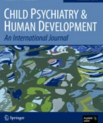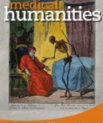Investigating the effects of perinatal status and gender on adults’ responses to infant and adult facial emotion
Article published in the Journal Emotion

Abstract
The perception of emotion in infant faces is a key parental skill, thought to be impacted by caregiving experience. It is widely assumed that women, and in particular mothers in the postnatal period, are more attuned to infant facial expressions than men. However, empirical evidence for this is lacking, and it is not yet clear whether potential differences in emotion processing between adults during pregnancy and postnatally are specific to infant expressions or extend to faces of all ages. In this cross-sectional study using a subsample from a Finnish birth cohort (N = 610), we examine adult and infant facial expression perception in pre- and postnatal men and women. Women rated the happy infant faces more positively on the valence (pleasure) dimension than men, but men rated the faces higher on the arousal (excited) dimension. There were no significant differences between adults responding during pregnancy or postnatally, but first-time mothers rated the faces as higher in arousal overall than multiparous mothers. The ability to identify specific emotions (e.g., sadness) in adult faces correlated with judgments of emotion in similarly valenced infant faces. We conclude that adults differ in their sensitivity to positive or negative emotions, independent of whether they are expressed in infant or adult faces. We did not find that perinatal status (pre- or postnatal) was associated with differences in sensitivity to emotion in infant or adult faces. Men and women were differentially sensitive to the valence and arousal in infant faces, independent of the timing of their responses.
Article
Parsons, C. E., Nummenmaa, L., Sinerva, E., Korja, R., Kajanoja, J., Young, K. S., Karlsson, H., & Karlsson, L. (2019). Investigating the effects of perinatal status and gender on adults’ responses to infant and adult facial emotion. Emotion. Advance online publication.
Contact
Christine Parsons, Associate Professor
Department of Clinical Medicine and IMC



